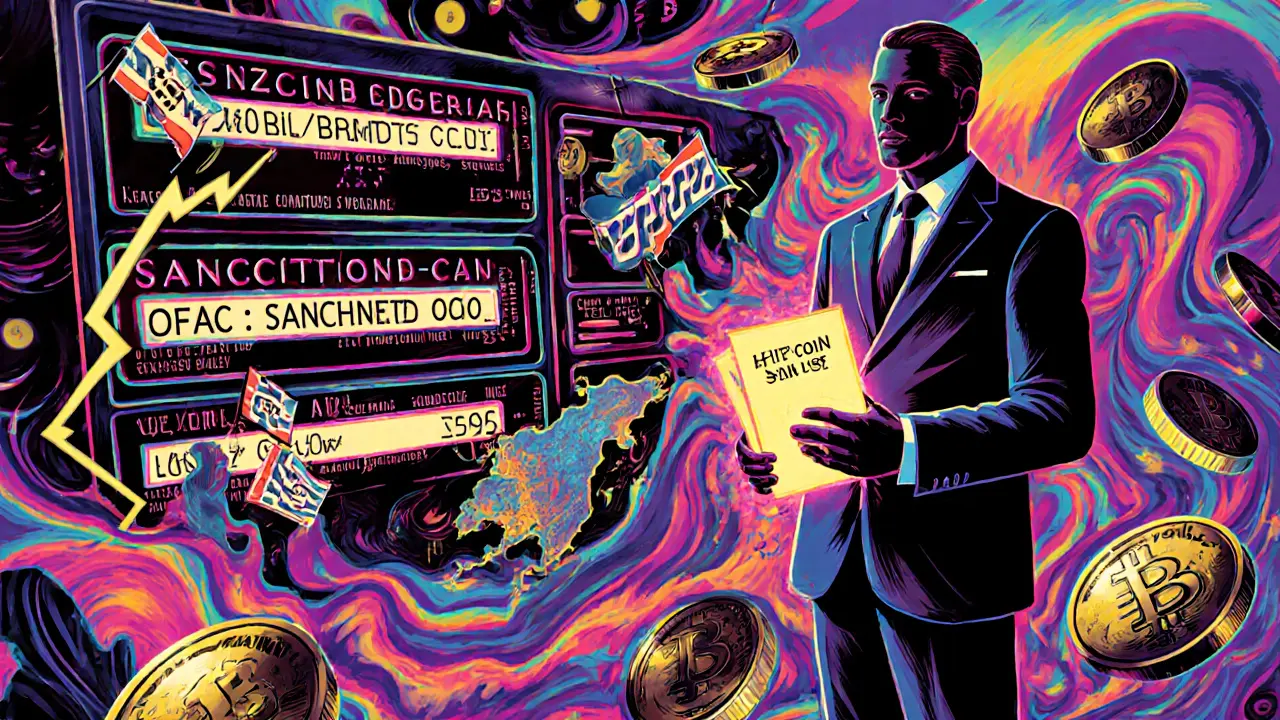OFAC Cryptocurrency Sanctions: Who’s Blocked and What It Means for Your Crypto
When the U.S. government targets crypto with OFAC cryptocurrency sanctions, a legal tool used to freeze digital assets tied to terrorism, crime, or hostile nations. Also known as crypto asset freezes, these sanctions don’t just block bank accounts—they freeze Bitcoin, Ethereum, and any token linked to a blacklisted wallet. This isn’t theoretical. In 2024, OFAC added over 200 crypto addresses linked to North Korean hacking groups, Myanmar scams, and ransomware operators. If your wallet interacts with one of these, even by accident, your funds could be frozen—or worse, your exchange account gets shut down.
These sanctions don’t just hit bad actors. They ripple through the whole ecosystem. Exchanges like Binance and Kraken now scan every deposit against the OFAC crypto list, the official public database of sanctioned crypto addresses and entities. Also known as Specially Designated Nationals (SDN) list, it’s updated weekly and includes not just wallets but entire projects—like dead tokens tied to fraud rings or DeFi platforms used for laundering. If a coin’s smart contract ever sent funds to a blacklisted address, it’s now flagged. You can’t trade it on regulated platforms, even if you bought it years ago. And it’s not just U.S. companies following this. The EU, UK, and even Singapore now mirror OFAC rules. If you’re using a non-custodial wallet, you might think you’re safe—but if you send ETH to a sanctioned address, your transaction will fail, or your wallet gets tagged as high-risk by blockchain analytics firms like Chainalysis.
Real-world cases show how this hits regular users. In 2024, Americans lost over $10 billion to Myanmar-based scams—and OFAC responded by freezing the wallets used to cash out those funds. Now, if you’re holding a token like VATAN or ELCASH that once interacted with one of those wallets, you’re stuck. No exchange will touch it. No wallet will let you send it. You can’t even sell it on a peer-to-peer platform without triggering a compliance alert. The same thing happened to users who got involved in fake airdrops like HGT or RNBW—those tokens were never real, but the wallets they used got blacklisted anyway.
What does this mean for you? If you’re holding crypto, you need to know where your assets came from. A token might look fine on CoinMarketCap, but if its history includes a single transaction to a sanctioned address, it’s toxic. Tools like Etherscan or Solana Explorer can show you the full transaction trail—but most users never check. And if you’re running a business? You’re legally required to screen every customer and every deposit. Skip that, and you could face millions in fines—or worse, criminal charges.
There’s no way around it: OFAC cryptocurrency sanctions are now a core part of crypto’s reality. They’re not going away. They’re getting tighter. The next time you send a transaction, ask yourself: Is this address clean? Is this token traceable? Because in 2025, ignorance isn’t an excuse—it’s a risk you can’t afford to take.
Below, you’ll find real cases, breakdowns of sanctioned projects, and guides on how to check if your crypto is clean—so you don’t end up locked out of your own money.
OFAC Cryptocurrency Sanctions and Compliance: What Crypto Businesses Must Do in 2025
OFAC cryptocurrency sanctions apply to all crypto businesses involving U.S. persons. Learn what you must do in 2025 to avoid fines, how to screen wallets, which tools to use, and why compliance isn't optional.
